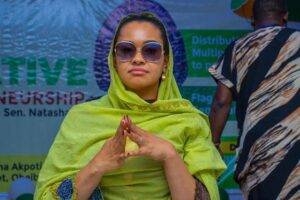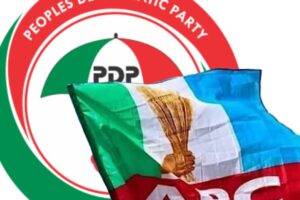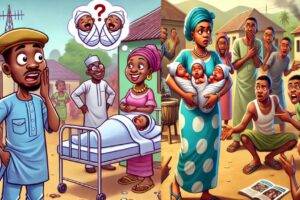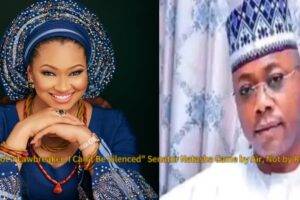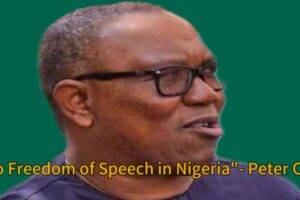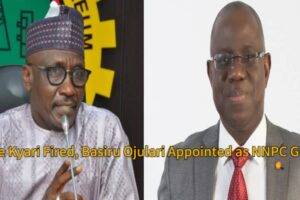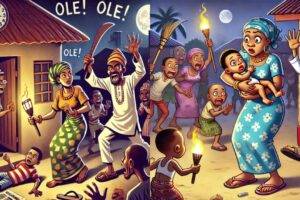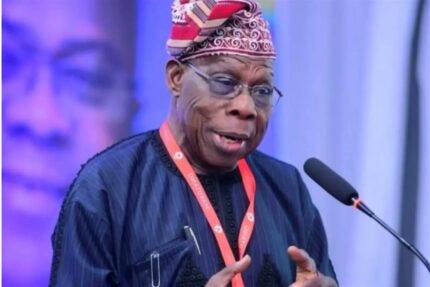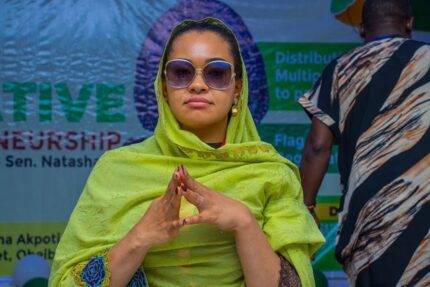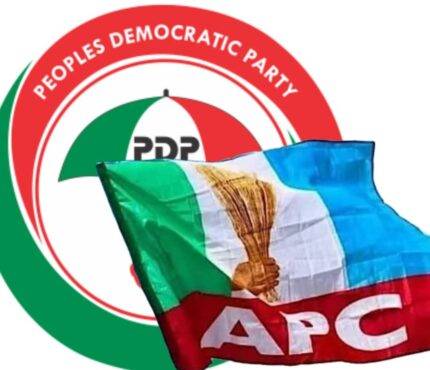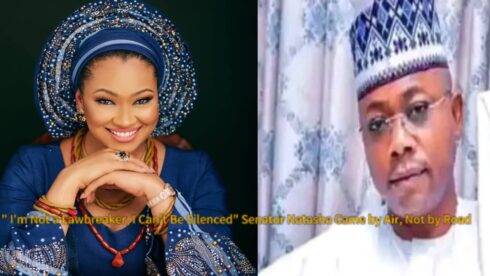Obasanjo: Several prominent Nigerian leaders and former public office holders have expressed deep concerns over what they describe as the deteriorating state of democracy in Nigeria. Speaking at a colloquium held at the Abuja Intercontinental Hotel to mark the 60th birthday of former Imo State Governor, Emeka Ihedioha, notable figures, including former President Olusegun Obasanjo, former Vice President Atiku Abubakar, and Catholic Bishop of Sokoto Diocese, Matthew Kukah, warned that Nigeria’s democratic system was failing to serve the interests of its citizens.
The event, which also featured ex-Commonwealth Secretary-General Emeka Anyaoku, former Labour Party presidential candidate Peter Obi, and former governors Aminu Tambuwal and Aminu Masari, provided a platform for a robust discussion on the challenges facing Nigeria’s democracy. In his keynote address titled “Is Democracy Failing in Africa?”, Bishop Kukah lamented that democracy in Nigeria seemed to favor only a select few, leading to increased public distrust in the judiciary and other democratic institutions.
Kukah: Nigeria’s Democracy Favours a Few, Judiciary Under Pressure
Bishop Kukah criticized Nigeria’s democracy, stating that it often operates in a way that benefits the elite while leaving ordinary citizens marginalized. He observed that political pressures on the judiciary have eroded public confidence in the system, particularly in the wake of controversial election verdicts.
“We as Africans inherited a system that is not originally ours, but that does not mean it is irrelevant. However, democracy is about justice, and right now, justice is compromised. I feel sorry for judges because they are under immense pressure,” Kukah stated.
He further called for an end to the “weaponization of religion” in Nigerian politics, stressing that both Christianity and Islam should not be used as tools for political manipulation. Kukah pointed to the relationship between Obasanjo and Atiku as an example of how democratic principles should be upheld, despite political differences. “The relationship between Obasanjo and Atiku is like a Catholic marriage. You may quarrel, but you don’t break up,” he noted.
Peter Obi: Nigeria’s Democracy Has Collapsed
In his remarks, Peter Obi countered Kukah’s argument that democracy in Nigeria was a work in progress, asserting instead that the system had already collapsed. According to Obi, the progress made between 1999 and the early 2000s has been reversed by subsequent administrations, leading to a near-total breakdown of democratic governance.
“Some leaders laid a solid foundation for democracy in 1999. Others built on it, trying to raise it to an enviable height. But today, everything has been knocked down. Nothing works anymore,” Obi lamented.
He recounted his own experience as Anambra State governor, highlighting the stark contrast between how democratic institutions functioned in the past versus today. “I won my mandate through the courts without bribing a judge. Even when I was impeached, President Obasanjo personally checked on me. Can that happen today? No. The entire system has failed,” he said.
Obasanjo: African Democracy Is Not People-Centered
Former President Olusegun Obasanjo weighed in on the discussion, asserting that democracy in Africa had been reduced to mere “representative democracy” that does not serve the true interests of the people. According to him, the principles of democracy as defined by Abraham Lincoln—government of the people, by the people, and for the people—have been undermined in Africa.
“What we have today is not democracy as it should be. It is not inclusive, and it does not cater to everyone. Democracy has been reduced to an elite-driven project that leaves out the majority of the people,” Obasanjo said.
He further argued that Africa needs to develop a democracy that is suited to its cultural and societal realities. “We should stop copying Western democracy blindly. What we need is an African democracy that works for Africa,” he added.
Atiku, Tambuwal, Anyaoku Call for Constitutional Review
Former Vice President Atiku Abubakar, reflecting on Nigeria’s democratic struggles, recalled how he was forced into exile during the military dictatorship of General Sani Abacha. He emphasized the sacrifices made to restore democracy in Nigeria and warned against allowing those efforts to be in vain.
“Many of us risked everything for democracy. I had to flee the country at some point because of Abacha’s hostility. We cannot let our struggles be in vain,” Atiku said.
Former Sokoto State Governor, Aminu Tambuwal, condemned the recent state of emergency imposed on Rivers State by President Bola Tinubu, criticizing the National Assembly for approving it without following constitutional procedures.
“Under Obasanjo, a state of emergency required a two-thirds majority vote in the National Assembly. What happened in this last instance? We must resist the erosion of democratic norms,” Tambuwal warned.
On his part, former Commonwealth Secretary-General Emeka Anyaoku advocated for a review of the 1999 Constitution, arguing that Nigeria’s democracy cannot function effectively without structural reforms. He stressed the need for true federalism, stating, “Our current political structure is flawed. We need a new constitution that reflects our diverse realities and ensures equitable governance.”
House Speaker Abbas: Democracy Is Evolving, Not Failing
However, the Speaker of the House of Representatives, Tajudeen Abbas, offered a contrasting perspective, insisting that Nigeria’s democracy is still evolving rather than failing. While acknowledging challenges, he maintained that the country had made significant progress in democratic governance over the past two decades.
“Democracy is a process, and Nigeria is making steady progress despite our challenges. We conduct periodic elections, we have a vibrant opposition, and we have institutions that continue to evolve,” Abbas argued.
He urged Nigerians to remain optimistic and committed to democratic principles, emphasizing that “democracy, by its nature, is always a work in progress.”
The Future of Nigeria’s Democracy at a Crossroads
The colloquium highlighted deep divisions in perspectives regarding the state of democracy in Nigeria. While figures like Peter Obi and Obasanjo believe the system has collapsed, others like Kukah and Abbas argue that democracy remains a work in progress.
What remains clear, however, is that Nigeria’s democratic institutions face serious threats, including judicial interference, political instability, and a lack of accountability. As calls for constitutional reforms and greater democratic accountability grow louder, the future of Nigeria’s democracy may depend on how these concerns are addressed in the coming years.
Table of Contents
Discover more from OGM News NG
Subscribe to get the latest posts sent to your email.

